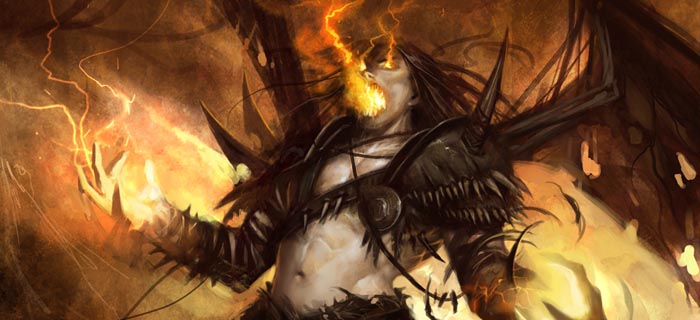HYPETRAIN 06/01/12: Attention passengers, stop being bad people
Welcome back to Hypetrain!
Next stop: hype.
Some of you might not remember Hypetrain. Back when I had more time on my hands, this was the apparatus by which I delivered gaming news to your greedy hands. The gimmick is that I hate gaming news, being that it tends to be little more than soulless sycophantic game advertizing wearing a thin journalistic disguise. So, I would either mock the entire premise or find slightly more obscure stories which I found more interesting than, say, Diablo 3.*
Well, guess what! I have time again. The Hypetrain is screaming through the fucking station, and it’s not stopping. It’s giving you the middle finger. That’s because this week (or so), the stories are interesting. I’m sure you will find them interesting, mister gamer.
This week’s topic: how gamers are bad people!
You are probably racist, demographically speaking**
John Scalzi wrote an article. First, he posted it on his blog. Then, Kotaku picked it up. It’s about how being a white, straight male is pretty much life’s easy mode. The article’s entire length is spent exploring that analogy, milking it for every little implication.
In summary: The world and its inhabitants are more forgiving toward a white straight male. Yes, white straight males can fail, or get dealt a bad hand, but they’re still on the easiest setting. Things will still be generally more favorable for them. The game is not more fun on higher settings. Nor can it be replayed. Also, no one actually got to select their difficulty setting in the first place. The easier difficulty, and the benefits it comes with, are known to rational people as “privilege.” It’s a good idea to be aware of one’s privilege. If one isn’t aware of one’s privilege, one is probably suffering from internalized prejudice.
My first reaction to this article was “aw, come on.” I didn’t have any quarrel with its content, but it seemed a little babyish. Surely no one really needed their hand held so far and so tight? Surely the mere title delivered the entire message?
Then I read the comments. Particularly, the ones posted on Kotaku.
“I wouldn’t really want to be black because there’s a mentality that seems really prevalent in black culture–this frustrating mentality of victimization.” – DocSeuss
“One thing I’d like to point out. If white dudes have it so easy, and all the minorities know it and expect more out of white people than they do out of their fellow minorities, then would that not cancel out any ‘advantage’ or ‘privilege’ SWM’s have?” – Kezelian
Oh my god. Why are so many gamers so bad at this?
Guys. Yes, this is important to talk about. No, pretty women do not have it better than you. No, affirmative action is not “reverse racism.” No, reverse racism is not a thing. Yes, we do have to discuss this.
It’s not my job, nor is it my place, to write an article which sets straight everyone’s views on race, but try this: it’s useful to think about prejudice and privilege as institutions and systems through which power is expressed, not as internal attitudes and actions which hurt peoples’ feelings. Just, try to think about that, okay? The lesbian who spends a lot of time railing against men for having privilege isn’t a “feminazi man-hating bitch.” She’s just got a case of righteous indignation. She’s not in the position of power, she’s not as privileged as a straight white male.
I know, I know. Scalzi does rightly point out in the latter of his follow-up posts that these comments don’t represent the majority of the article’s readers, just the most vocal among them. Lots more people probably shared my reaction, or had other sane reactions. I just get nervous about these things, because gamers have historically been proud of their gross, sweaty, insular culture, and this is something I think needs to change.
Speaking of…
A storm approaches, let the gates sit open, let the rain pour in
Nadeo, designers of the excellent Trackmania franchise, are branching out into the world of arena shooters. Shootmania: Storm (see trailer below) boasts an ease-of-use map editor which will allow players to design not only level layouts, but entire game modes through the use of an in-engine scripting language. Robust video tools for machinima and frag videos are a bonus.
What’s that? I’m doing exactly what I said I wouldn’t, and singing praise for some upcoming game? Yeah. I am. That’s because this game is potentially important, so sit back down.
As this PC Gamer article lays out, this game is interesting only partly because of its embedded creative suite. What’s most significant about Shootmania is what it’s reaching for in terms of demographics. The foundational design goal of the game is to be a good spectator event, and for those spectators to potentially include non-gamers and casual gamers.
Up until now, competitive games have been esoteric, to say the least. Quake is good to watch if you understand the dynamics of map control, the properties of every weapon, and the layout of every map. Starcraft 2 is good to watch if you understand why marines are good against void rays. Shootmania is built to be good to watch for anyone: there’s only one weapon which fires highly visible projectiles, the health system is simple and effective, there is no graphic violence.
Assuming Nadeo can design tight and satisfying competitive gameplay around these constraints, and simultaneously attract the casual spectator audience and a hardcore playerbase, then I want to urge gamers to take this one seriously. It would be a shame to scorn the game for its open attitude toward those outside our inner circle. This isn’t pandering, this is forward-thinking. Gaming will need to overcome its image problem one of these days.
Responding to the people Shootmania hopes to attract with scorn, just because they don’t like to play stupid games on computers, would seal our fate as an island culture. And that outcome looks all too predictable from here.
* I also tend to put these out after the stories are a little out-of-date, so please don’t read any other gaming news sites.
** I would be overjoyed if T3’s readers could prove me wrong on this one.








Consider me officially hyped for Shootmania. Trackmania is/was a great game, and I agree that making FPS more mainstream will help the e-sports community in the long run.
Please stop advertising on /v/. It is a place for video games, not your thesis on gender studies.
We’re not advertising on /v/. There’s no ROI in it. Someone else must have done it. Not sure if I should thank them, or smack them.
A simple, laser tag-ish shooter with Trackmania style map editor and the shiny lights we all loved in TRON?
Consider me hooked already.
Also, not racist.
“No such thing as reverse racism”
You’re leaving yourself open here. You’re under the very outdated assumption of what’s called “prejudice without power”, which was the idea that racism could only be termed as such when one group was prejudiced and had power over the other. As I said, it’s hopelessly discredited.
Yes, minority groups can be racist towards white people. Yes, minority groups can be racist towards other minorities. It exists, and any attempt to suggest it doesn’t, only justifies it in the eyes of racists. Pointing out that it exists does not condone racism perpetuated by white people either – in fact, pointing it out helps towards eradicating racism altogether.
Hate in all it’s forms should not be tolerated. Do not make excuses for one kind.
except youre wrong
How is he wrong? Is it okay for someone to hate white males with extreme prejudice?
There’s room for a pretty interesting discussion here, but given that you’re willing to state that prejudice without power is “hopelessly discredited” and then leap straight into your conclusion doesn’t give me much hope that we’re in store for it. I don’t doubt that there are scholars who share your views, but I do doubt that there’s as much consensus here as you seem to think.
Because this was an article about video games, I decided to keep the nuts and bolts of these issues mostly on the sidelines, but I’m willing to go anywhere in the comments. Here’s why I believe in defining racism the way I laid out. (We’ll limit this discussion to race for the sake of simplicity.) Of course I do think it’s possible for a minority to have irrational hatred for a privileged culture. It would be absurd for me to deny that. But it’s a very different power dynamic.
If a black man tells a white man that he’s no good because white people are worthless, sure, the black guy’s in the wrong. But although the white man might get a little steamed, he can still happily go home and write a post to /v/ about how black culture has such anger issues resultant of their victim complex. All in all, it was a negative social encounter, nothing more.
The black guy has no opportunity to escape that dynamic, because racism is more than an isolated social encounter. It’s a discourse. It’s an institution. For the white guy to get smug and declare the prejudiced black guy wrong about white people and go home, he automatically has to pull rank, invoke his privilege. That he has that ability while the black victim doesn’t is a greater injustice than what people call “reverse racism,” and I think that denying this distinction and saying that hate is simply hate, the end, is a damaging attitude. Thus, it’s productive to define terms such that anyone can be prejudiced, but racism describes oppression. Oppression is worse than rudeness.
If you can direct me toward some literature which has hopelessly discredited this line of thinking, I’ll happily give it a look.
I think the major flaw in this argument is that it assumes the I ly outcome of racism in either direction is a rude comment. People can lose jobs, or even their lives, due to prejudicial hate.
If your hypothetical black man beats the white man to death because “fuck white people” no amount of privilege will bring him back to life.
Well, OK. Let me just preface this by saying that debating this point isn’t pedantic, because I do feel strongly that if journalism is to succeed, then it must be willing to be fully aware of the issues that are being discussing. The fact that you’re arguing your opinion, and inviting me to continue with it, is commendable, particularly on the internet where it’s commonplace for people to get defensive over their work.
So that’s that out of the way. Now on to the point itself.
Your argument suggests that there is degree of racism itself, and still relies on the idea of prejudice with power, on which the point you made about consensus I’ll get to at the end of this post. The main reason this approach was abandoned was because it asserted that it prejudice exerted by the privileged group was purely hatred towards the intrinsic factor of someone’s skin colour, whereas any racial hatred exerted by the minority group toward the privileged group was somehow due to the perceived power structures present in society.
It’s a very tempting way to think sociologically. One group is being dominated, ergo any rage which is displayed by those being dominated, including the illogical and abhorrent one such as racism, must be because of that power system. The increasing volume of evidence though, particularly studies focusing on mutli-ethnic communities, almost conclusively showed that racism,regardless of the status of the group which it is displayed at, is always based on ideas of racial inferiority. Ideas surrounding power structures in society rarely come into play.
Now, I’m going to reiterate my original post here. Lumping racism with actual anger towards the current system which is in place, does immense harm to minority groups, for several reasons. One, it’s quite patronizing, because it suggests that minorities are incoherent in articulating their anger about society. Secondly, it damages the image of legitimate protest in the eyes of the society it wishes to change, because it suggests that part and parcel of protest of the system is some undercurrent of racism. And lastly, as I said in my original post, it attempts to make excuses for racism, and on the, ironically, racist belief that it’s OK for some people to be racist purely because of their skin color.
I agree with you that there are a lot of privileges in society that exist that a dominate group is hardly aware of, and it’s important to educate and highlight everyone about this. But you run the very real risk of condoning the use of hatred by saying it’s the same as logical, coherent anger over that same system of privilege.
As for the assertion that it’s not widely discredited, well, there may be differences in how current sociology is taught between America and Europe. Most sociologists in Europe suggest that it’s a false idea.
Now, I’m not going to link you a whole series of sociology texts – but I will give you a nice little introduction to the topic from a British perspective. ‘There Ain’t on Black in the Union Jack’ by Paul Gilroy looks at the experience of the Afro-Caribbean community in the UK, and suggests that contemporary Marxist ideas about race at the time (basically, the concept of “prejudice with power”) were directly unhelpful, and what’s more, fundamentally wrong, to the fight for equality in Britain. Specifically, the chapter on ‘The Two Sides of Anti-Racism’ goes into great detail on this.
This post has been a bit long, and as I said at the start, it may come off as pedantic. But again, I’ll reiterate – on such an important issue as race, it is absolutely essential that you clarify your position fully in order to get your original point across (which is an entirely valid one) without leaving yourself open to complaints that you’re discrediting that point.
*discussed rather. Rather poor grammar there, and right at the start as well. Oh well.
Just to clarify as well, this post is a reply to the debate going on above.
Thanks for the thoughtful comment, I retract my scorn that you leaped into a conclusion. However –
“The main reason this approach was abandoned was because it asserted that it prejudice exerted by the privileged group was purely hatred towards the intrinsic factor of someone’s skin colour, whereas any racial hatred exerted by the minority group toward the privileged group was somehow due to the perceived power structures present in society.”
This isn’t an assertion I made. You seem to be associating my argument with a different one and arguing against that, instead of mine! I haven’t said a single thing about the reasons why people hate one another, I’m only making the point that prejudice against the privileged is a pretty different equation from prejudice against the oppressed. I haven’t excused the former, or rationalized any of its causes, just said that it tends not to be as damaging. After all, without power behind it, how could it be?
You agree with the basis on my point, that privilege needs checking. I’m sure you’d also agree that the comments I quoted in the article are inexcusably racist. Probably you would also agree that “feminazi” is a horrible, reductionist, regressive term. Our disagreement seems to be primarily be regarding terminology: I like to use racism to mean “racial oppression.” You like it use it to mean “racial prejudice.” We agree, seemingly, that both exist, and that they aren’t quite the same thing. I don’t terribly feel the need to argue semantics, so I think we’ve run this about as far as it goes.